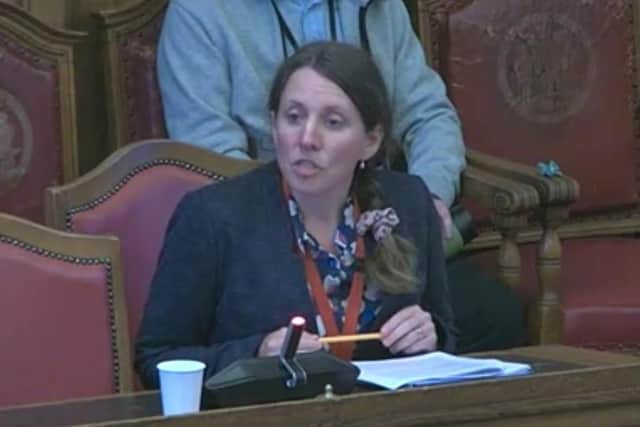Sheffield is worse than national average for rocketing gonorrhoea and syphilis, warns public health
and live on Freeview channel 276
Ruth Granger, public health consultant, highlighted the substantial rise in a recently published document updating city leaders on issues affecting health protection in Sheffield.
The report was discussed in a meeting of Sheffield’s health and wellbeing board today (September 28).
Advertisement
Hide AdAdvertisement
Hide AdIn the meeting, Ms Granger said: “[Cases have] been increasing across the country but we have got an increase beyond the increases we are seeing across the country.


“Syphilis is particularly concerning because it can be such a serious infection and we are seeing it in groups we haven’t previously seen it in as much so we are taking action on that.”
Greg Fell, director of public health, added: “I knew the numbers were high but it was genuinely really, really sobering. Even I was quite sobered.”
Diagnoses of the sexually transmitted infections are at record levels nationally, according to data released by the UK Health Security Agency (UKHSA) in June and Sheffield is worse than the national average.
Advertisement
Hide AdAdvertisement
Hide AdThe data showed that in Sheffield the number of syphilis diagnoses rose from 17 in 2021 to 73 last year, an increase of 329 per cent.


It also revealed the number of gonorrhoea diagnoses in the city increased from 332 in 2021 to 809 last year – an increase of nearly 500 (134 per cent).
Ms Granger said the Sheffield sexually transmitted infections (STI) strategy group was reformed to take action by increasing testing for groups where syphilis testing is lower and also to develop an STI prevention plan.
She said: “What clinicians are telling us is that, similarly to a lot of issues, Covid seems to have made quite a big difference.
Advertisement
Hide AdAdvertisement
Hide Ad“People’s attitudes and behaviours have changed, the way they view their sexual behaviour or sexual identity has significantly changed. Some of the things we would have previously identified as clear actions you could take are maybe not as obvious as they previously were.
“We are trying to tackle an increase when people’s attitudes and behaviours have changed quite significantly in quite a short period of time. So that is a particular challenge.”
A spokesperson for UKHSA has reminded people to wear a condom and get regularly tested if they are having sex with new or casual partners, whatever their age or sexual orientation.
Dr Hamish Mohammed, consultant epidemiologist at UKHSA, said: “We saw more gonorrhoea diagnoses in 2022 than ever before, with large rises particularly in young people.
Advertisement
Hide AdAdvertisement
Hide Ad“STIs aren’t just an inconvenience – they can have a major impact on your health and that of any sexual partners. Condoms are the best defence, but if you didn’t use one the last time you had sex with a new or casual partner, get tested to detect any potential infections early and prevent passing them on to others. Testing is important because you may not have any symptoms of an STI.”
STIs are usually easily treated with antibiotics but many can cause serious health issues if left untreated. Chlamydia and gonorrhoea can cause infertility and pelvic inflammatory disease and syphilis can cause serious, irreversible and potentially life-threatening problems with your brain, heart or nerves, according to the government.
Sexual Health Sheffield, based at the Royal Hallamshire Hospital on Glossop Road, Broomhill, offers tests, free condoms and a wide range of other advice and support.